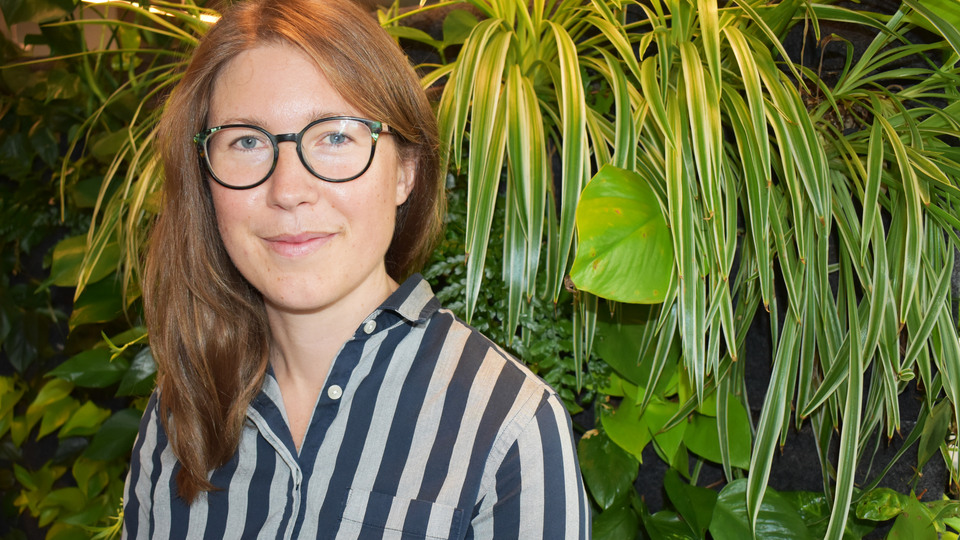
Workshops a basis for good collaboration in Mistra SafeChem
One of the work packages in Mistra SafeChem is led by Hanna Holmquist. During the second half of 2021, she doubles as programme manager. Now, after the first year of the programme, we asked her about the work so far and the coming plans.
Hanna Holmquist, IVL Swedish Environmental Research Institute, is an eco-toxicologist with a doctoral degree in environmental systems analysis. She takes the role of programme manager until January 2022, while Richard Lihammar is on parental leave.
What is the main task in the work package you are leading?
– We work with life cycle based tools, such as life cycle assessment, LCA, for the assessment of products and processes with a focus on chemicals. The main task is to develop a life cycle based assessment toolbox to assess and improve the safety and sustainability of chemicals. This work includes further development of the two existing tools, USEtox® and Proscale. It is a benefit to use them both, to see how they complement each other and where they need to be further advanced.
What is the benefit of using LCA in Mistra SafeChem?
– When doing an LCA of a material or a chemical you base your assessment on the function, not just the material, to see the impact over the whole life cycle. When it comes to substitution, something very different could work for the same purpose. It can be a smarter material or maybe something completely different, as a barrier instead of a chemical flame retardant. The function is really the key. This way we can make very relevant environmental and human health assessments.
You have been part of arranging several workshops – about what?
– Our work package has arranged two series of workshops. One with the main intention to educate our colleagues involved in the case studies in life cycle thinking and LCA, to put the team on the same knowledge platform. In another series of workshops, we educated ourselves and colleagues from the other work packages, on the tools of the toolbox. As we expect the partners – many with no background in LCA – to do a lot of their data collection and sometimes modelling, we wanted to teach them about LCA. But they taught us as well – about their special life cycle questions.
You seem to have organised a lot of workshops.
– I think we have had eight so far, some of them custom made for different areas. It has been a really good job by the team! For example, Peter Fantke, Olivier Jolliet and their colleagues from the USEtox® team put a great effort into preparing workshops on their model. They also adapted it for specific Mistra SafeChem contexts – that was very useful.
What were the results?
– We definitely learned from each other. Now we have several case studies where we have intense collaboration to evaluate, for example, whether the newly developed processes are more sustainable than the old ones, and we intend to use LCA to support this assessment. I am convinced that that wouldn't have been possible without that training.
You presented the toolbox work at the SETAC conference in May. How come?
–The main goal was actually to use the writing process for the abstract to find a common understanding about the toolbox in my work package group. The abstract was accepted by SETAC, so I recorded a presentation to tell the wider research community about our plans. It is a way of putting Mistra SafeChem on the map – now we have to live up to this!
(You can see the recorded presentation here.)
How is the job going in Mistra SafeChem?
– It is going well; we are learning from each other in different collaborations. But we have to be humble about the size of the programme, it is not easy to keep together. We are one year in, that is still early in a big programme like this. But it is wise to start talking about the continuation after these first years, to keep us coordinated and adaptive to a new context.
And in your work package?
– We have got funding from the programme reserve to support the finance of a PhD student affiliated with DTU, starting in August, which we are very excited about! We also intend to reach the first milestones in the case studies this autumn.
As substituting programme manager – what is most important for you and the programme?
– In this role, I want to make sure all the work Richard has started is continued. We are welcoming a new programme partner and will recruit a new postdoc. And a big task is the programme conference in November, we will put a lot of effort into making it interesting to both contribute and take part.
-
2024-04-03 | newsFour more years – Mistra SafeChem gets go-ahead for second phase
-
2024-03-28 | newsThe 2023 Mistra SafeChem annual report focuses on more than just one year
-
2024-03-21 | newsSETAC conference on LCA will be held in Gothenburg
-
2024-02-27 | newsMistra SafeChem researchers keynote speakers at large conference on SSbD
-
2024-02-16 | newsThe Mistra SafeChem cosmetics study specially invited to EU workshop on SSbD

